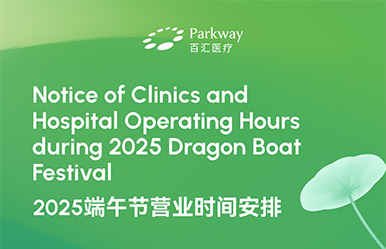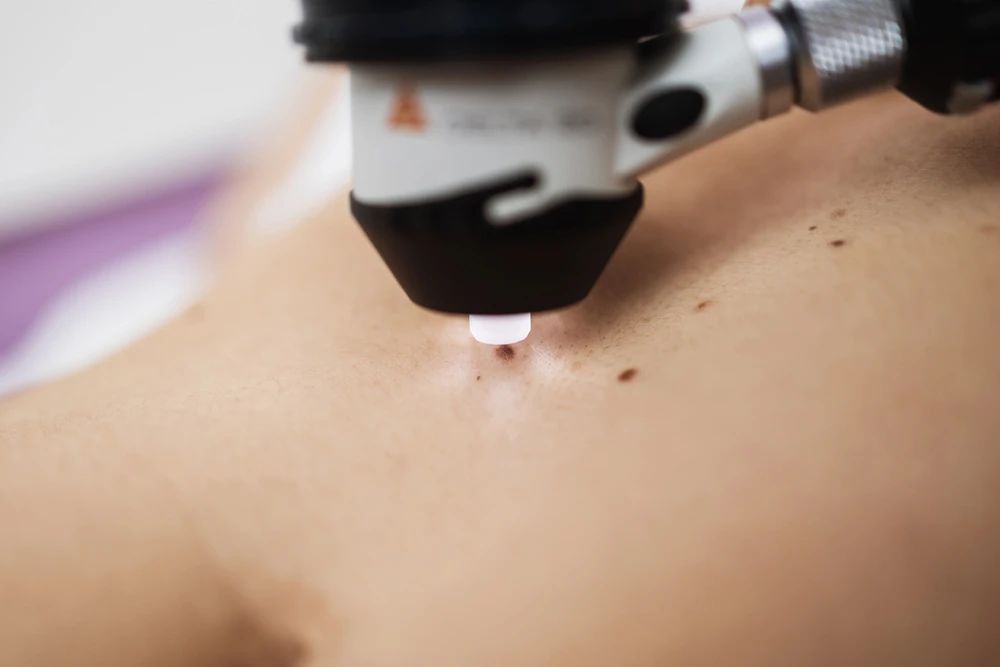Parkway Vaccination Clinic
The following vaccine information is sourced from Parkway Shanghai Hospital Vaccination Center. The vaccine information is based on the guidelines and recommendations issued by the World Health Organization, Shanghai Municipal Center for Disease Control and Prevention, and the packaging instructions of various vaccines.
For personalized medical advice and prescriptions, please schedule an appointment with a general practitioner, pediatrician, or gynecologist. You can also consult with our pharmacists to learn about the available vaccine types.
Vaccines are distributed by the CDC. If you require vaccination services at any of our Parkway hospitals or clinics, please contact us in advance to verify availability. If you are temporarily unable to access the needed vaccine services, you may consult with our general practitioner, pediatrician, or gynecologist for suitable alternatives.
Vaccination Introduction

-
Influenza Vaccine
Influenza Vaccine Recommendations: Influenza vaccination is recommended annually for persons age 6 months and older who do not have contraindications. Vaccination is particularly important for persons at increased risk for severe illness and complications from influenza.
Influenza Vaccines Schedule:
1 dose each influenza season for persons age 9 years or older
1 or 2 doses each influenza season for children age 6 months through 8 years
Influenza (hereinafter referred to as "influenza") is an acute respiratory infectious disease caused by influenza viruses. Symptoms generally include acute onset, fever, chills, headache, muscle and joint aches, extreme fatigue, loss of appetite and other systemic symptoms. Influenza viruses that infect humans are divided into three types: A, B, and C.
Influenza virus is a fickle virus, and the influenza strains circulating each year are not exactly the same. Every year the WHO releases new flu vaccine components to keep up with rapidly adapting flu viruses. In addition, antibody levels decline over time and the protection time period of influenza vaccine is relatively short, usually only about 6 to 8 months. Therefore, it’s recommended to have annual flu shot.
-
Hepatitis B Vaccine
HepB Vaccine Recommendations:
Infants beginning at birth
Adolescents and adults: not previously vaccinated or at risk for or requesting protection from HBV infection
Hepatitis B Vaccination Schedule:
3-dose series at 0, 1, 6 month
Hepatitis B Virus (HBV) is transmitted through close contact with blood or other bodily fluids, such as through sexual contact, blood transfusion, the sharing of contaminated needles, or mother to infant transmission during birth. Once infected with the virus, you may become an HBV carrier with a higher risk of developing chronic hepatitis B, liver cirrhosis or liver cancer. The best way to prevent hepatitis B is to receive HBV vaccination, which is recommended for those with no previous history of infection and have not yet received the vaccination previously. In addition, booster shots are recommended for those with low antibody levels, which can be detected through a blood test.
-
Human Papillomavirus Vaccine(HPV)
HPV9 Vaccine (Gardasil 9) Recommendations:
Routine vaccination recommended for females age 9 through 45 years
Not licensed for adults over age 45
HPV Vaccination Schedule:
2-dose series
For girls age 9 through14 years
0, 6-12 month schedule
3-dose series
For persons who receive first valid dose on or after 15th birthday
0, 2, 6 month schedule
The human papillomavirus (HPV) may cause a variety of diseases, including genital warts and cervical cancer. Cervical cancer is a serious disease that results from the body’s inability to clear the female reproductive tract of the virus. There are more than 100 types of HPV, but of these, only about 14 types will lead to cancer, with HPV types 16 and 18 accounting for over 70% of cervical cancer cases caused by the infection. Fortunately, cervical cancer is preventable, and the World Health Organization (WHO) recommends a combination of the vaccination and routine cervical screening as effective preventative measures. However, the vaccination cannot treat existing infections and lesions or replace cervical screening. The HPV 9-valent vaccination protects against nine HPV types: HPV 6、11、16、18、31、33、45、52、58, which prevents over 90% cervical cancer and STD caused by HPV 6 and 11. It is recommended for women aged 9-45 years old.
-
Hepatitis a Vaccine
HepA Vaccine Recommendations:
The pediatric formulations are approved for persons age 12 months through 18 years
The adult formulations are approved for adults aged 18 and above
Hepatitis A Vaccination Schedule:
2-dose series at 0, 6–18 month
Hepatitis A (hereinafter referred to as "hepatitis A") is caused by hepatitis A virus and is transmitted through food. Hepatitis A may cause acute symptoms, such as fever, nausea and vomiting, pain in the region of the liver and jaundice. Hepatitis A is one of the most common acute infectious diseases in China.
Hepatitis A vaccination is an effective way to prevent hepatitis A and is recommended by WHO for all children over the age of one in high-risk countries, including China. The Shanghai CDC recommends it for children over of the age of 18 months.
-
DTaP-IPV/Hib (Pentacel) Vaccine
DTaP-IPV/Hib (Pentacel) Vaccine Recommendations:
DTaP-IPV/Hib (Pentacel) vaccine is approved for use for infants and young children aged 2 months and above
DTaP-IPV/Hib (Pentacel) Vaccination Schedule:
4 doses series at age 2,3,4 month or 3,4,5month,an additional booster dose should be administered at 18 month
DTaP-IPV/Hib (Pentacel) Vaccine is adsorbed acellular diphtheria-tetanus pertussis, inactivated poliomyelitis and Haemophilus influenzae type b combined vaccine.
Haemophilus influenzae disease is caused by Haemophilus influenzae infection and is transmitted through the respiratory tract. The most common pathogenic type is Haemophilus influenzae type B (Hib). Clinical manifestations include meningitis, pneumonia, epiglottitis, sepsis, cellulitis, etc. It is more common in children under 5 years of age, and the disease burden is most severe among children aged 4 to 18 months.
Diphtheria is caused by Corynebacterium diphtheriae and is transmitted through the respiratory tract. It is clinically characterized by local gray-white pseudomembranes and systemic toxemia symptoms. Severe cases may be complicated by myocarditis and nerve ending paralysis.
Pertussis is caused by Bordetella pertussis and transmitted through the respiratory tract. It is characterized by paroxysmal and spasmodic coughs that are terminated by a rooster-like inhalation roar. It is often complicated by pneumonia and encephalopathy and leads to infant death.
Tetanus is caused by Bacillus subtilis and transmitted through contaminated wounds. Tetanus bacillus can produce tetanus toxin, which destroys the normal inhibitory regulatory function of nerves, causing muscle spasm and movement disorders, causing symptoms of muscle rigidity and paroxysmal spasms, and ultimately death from suffocation and heart failure.
Poliomyelitis (hereinafter referred to as "polio") is an acute infectious disease caused by polio virus. The main clinical manifestations are fever, sore throat, and limb pain. In some cases, limb paralysis may occur, and severe patients may die due to respiratory paralysis. This disease mostly occurs in children, so it is commonly known as "polio".
Vaccination with acellular diphtheria-tetanus pertussis, inactivated polio and Haemophilus influenzae type b combined vaccine (DTaP-IPV-Hib, pentavalent vaccine) is an effective means to prevent the above five diseases.
-
Meningococcal Vaccines
Meningococcal Vaccines Recommendations: The vaccination recommendations for different types of meningococcal vaccines vary, which are based on the vaccine instructions and CDC regulations. Consult your healthcare provider for more information.
Meningococcal Vaccines Schedule: The vaccination schedule for different types of meningococcal vaccines vary, which are based on the vaccine instructions and CDC regulations.Consult your healthcare provider for more information .
Meningococcal disease is an acute, severe illness caused by the bacterium Neisseria meningitis. Meningitis can cause pneumonia,meningitis and sepsis. Meningococcus are transmitted person-to-person by respiratory droplets or secretions from persons with asymptomatic colonization or meningococcal disease.
The mortality rate of meningitis is high, and 10% to 20% of survivors have long-term sequelae. Meningococcus are divided into multiple groups, and the vast majority of meningococcal infections are caused by groups A, B, C, X, Y, and W135.
One of the most effective means of preventing meningitis is vaccine.
-
Varicella Vaccine
Varicella Vaccine Recommendations: VAR vaccine is licensed for use in persons aged 12 months or older who are not previously vaccinated or infected.
Varicella Vaccine Schedule: 2 doses series at age 12 month and 4 years.
Chickenpox is caused by the varicella-zoster virus and are spread through the respiratory tract. Chickenpox is a primary infection that is transmitted in more than 90% of children. It is characterized by vesicular rashes all over the body. The most common complications are skin infection, pneumonia and encephalitis.
Varicella vaccination is an effective way to prevent varicella (chickenpox).
-
MMR Vaccine
MMR Vaccine Recommendations:
Shanghai CDC recommends MMR vaccine in persons aged 8 months or older who are susceptible to measles, mumps, and rubella.
WHO recommends people aged ≥12 months.
MMR Vaccine Schedule: Based on Shanghai Immunization Schedule,3 doses series at age 8month,18month, and 6years.
Measles, mumps, and rubella are all acute respiratory infectious diseases caused by viruses, which mainly occur in children and adolescents.
The clinical manifestations of measles include high fever, cough, runny nose, conjunctival congestion, and rash. Complications of measles infection in infants and young children are the main cause of infant death.
The clinical manifestations of mumps are unilateral or bilateral non-suppurative swelling, pain, and fever in the parotid glands. It can also cause complications such as meningitis, meningoencephalitis, orchitis, oophoritis, and pancreatitis.
The clinical manifestations of rubella include low-grade fever, rash, swollen lymph nodes behind the ears and behind the occipital gland, and joint pain. Rubella infection in pregnant women can easily lead to congenital malformations in the fetus.
Measles, mumps, and rubella vaccination is an effective way to prevent measles, mumps, and rubella.
























